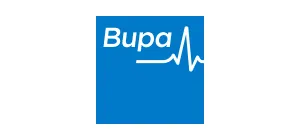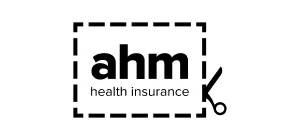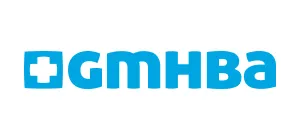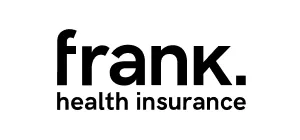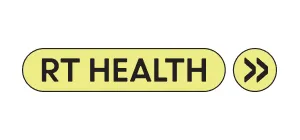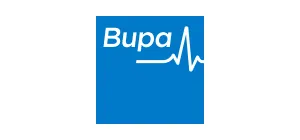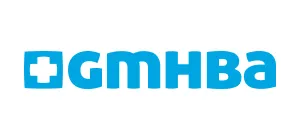What is Gold health insurance?
Gold private health cover offers the highest level of hospital cover available, covering policyholders for all 38 of the clinical categories set out by the Australian Federal Government.
Private health insurance hospital policies are grouped into four main tiers: Gold, Silver, Bronze and Basic. Each tier covers different categories of medical treatments and services that must be included in policies as a minimum. This makes it easier to compare products and see which ones suit your specific needs.
Given that Gold health insurance covers the widest range of services and treatments, it’s likely to be more expensive, with higher premiums compared to policies of lower tiers. That’s why it’s worth comparing Gold health insurance policies to help you find the best value across the different health funds for your needs and budget.
Health insurers can also choose to offer ‘Plus’ policies (Basic Plus, Bronze Plus and Silver Plus) that include extra coverage on top of the minimum required by law. For example, you could have a Silver Plus policy that includes pregnancy and birth cover, which would normally only be available under a Gold policy. However, as Gold is already the top tier of coverage available, you won’t find Gold Plus policies.
What is covered by Gold private health cover?
On top of providing the same level of cover as Basic, Bronze and Silver policies, Gold policies include mandatory cover for an extra nine clinical categories such as cataracts, pregnancy and birth, and joint replacements.
Gold tier policies must also provide unrestricted cover for each category, which differs from Basic, Bronze and Silver tier policies. This includes rehabilitation, hospital psychiatric services and palliative care, which insurers are only required to cover on a restricted basis under their policies in other tiers. A restricted basis refers to insurers only being able to partially cover you for hospital costs as a private patient in a public hospital.
As set out by the Federal Government, the categories covered under a Gold tier policy are:
- Rehabilitation
- Breast surgery (medically necessary)
- Hospital psychiatric services
- Diabetes management (excluding insulin pumps)
- Palliative care
- Heart and vascular system
- Brain and nervous system
- Lung and chest
- Eye (not cataracts)
- Blood
- Ear, nose and throat
- Back, neck and spine
- Tonsils, adenoids and grommets
- Plastic and reconstructive surgery (medically necessary)
- Bone, joint and muscle
- Dental surgery
- Joint reconstructions
- Podiatric surgery (provided by registered podiatric surgeon)
- Kidney and bladder
- Implantation of hearing device
- Male reproductive system
- Digestive system
- Hernia and appendix
- Gastrointestinal endoscopy
- Gynaecology
- Miscarriage and termination of pregnancy
- Chemotherapy, radiotherapy and immunotherapy for cancer
- Pain management
- Skin
In addition, Gold private health cover includes the following nine clinical categories, which are not covered by other tiers of health insurance:
- Cataracts
- Joint replacements
- Dialysis for chronic kidney failure
- Pregnancy and birth
- Assisted reproductive services
- Weight loss surgery
- Insulin pumps
- Pain management with device
- Sleep studies
How does Gold health insurance work?
Gold private health cover offers benefits not available with other tiers, though this doesn’t just mean rare or unusual conditions. For example, Gold cover includes cataract surgery, which is a relatively common operation in Australia. And if you’re planning to start a family, only Gold private health cover includes benefits for pregnancy and assisted reproductive services as a standard inclusion.
You will normally have to complete waiting periods before you can claim for certain medical treatments and services on your Gold health insurance policy. This is typically two months for most treatments, or as long as 12 months for pre-existing conditions and pregnancy or birth benefits. An exception may be if you need hospital or medical treatment because of an accident that occurs after you start your policy.
How does Gold health insurance compare to Silver and Bronze cover?
When choosing private hospital cover, it’s important to understand the differences between Gold, Silver, and Bronze tiers. Each tier offers varying levels of coverage, costs, and restrictions, so selecting the right one depends on your health needs and budget. Below is a clear breakdown of how the three tiers compare:
Gold Health Insurance
- Most comprehensive hospital cover and typically the most expensive tier.
- Covers all 38 clinical categories for hospital treatment and services.
- Includes full coverage for major treatments such as:
- Pregnancy and childbirth
- Heart surgery
- Joint replacements and orthopedic procedures
- No restrictions or “basic” versions of cover for any clinical category.
- Out-of-pocket costs, such as the excess and gap payments, may still apply, but coverage is as complete as private health insurance allows.
Silver Health Insurance
- Mid-level hospital cover, generally cheaper than Gold.
- Covers fewer clinical categories than Gold (29 categories vs. 38).
- Some major treatments may be included, but coverage can be restricted:
- Only certain procedures or parts of treatment may be covered
- Pre-existing condition limitations may apply
- Suitable for those who want a balance between cost and coverage.
Bronze Health Insurance
- Entry-level hospital cover, typically the least expensive tier outside of Basic.
- Covers 21 clinical categories, the fewest among these three tiers.
- Major treatments may be covered on a restricted or limited basis.
- Not ideal for people who anticipate needing extensive hospital treatment.
- Focuses on essential hospital services rather than comprehensive coverage.
How much does Gold health insurance cost?
The cost of premiums for Gold private health insurance can vary widely, based on a variety of factors, such as:
- The provider you choose
- The policy you select
- If you want cover for just yourself or the whole family
- Where you live
- Your annual income
In addition, the cost of Gold private health cover can change depending on when you take out health insurance for the first time. A lifetime health cover (LHC) loading can apply if you haven’t had private hospital cover in place from 1 July following your 31st birthday. The LHC loading of 2% is added to premiums for every year you’re aged over 30 and don’t have private hospital cover.
Because the cost of Gold health insurance can change depending on your individual situation, comparing different policies and their premiums is important.
Is Gold health insurance worth it?
Whether Gold health insurance is worth it for you will depend on your healthcare needs and financial situation.
It may be worth considering a Gold policy if you’re planning to start a family. If you want to give birth as a private patient, Gold is the only tier that is required to cover you for pregnancy and birth services. Also, Gold policies will provide coverage if you need assisted reproductive services such as IVF.
Gold policies may also be worth considering for older Australians or people with chronic illnesses. Notably, the Gold tier is the only one required to cover cataracts, joint replacements and dialysis for chronic kidney failure, which policies from other tiers will not necessarily cover. Gold private health cover could also be of interest if you have diabetes and need an insulin pump.



